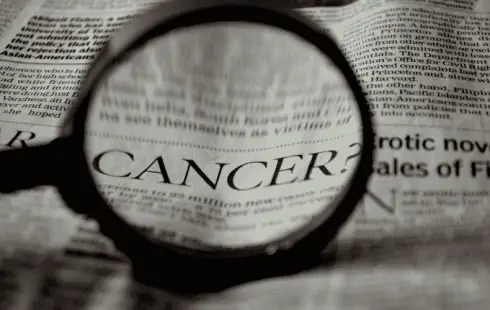
Pantone's Color of the Year an Endless Neutral Loop
Section: Fashion
 A recent study has cast a shadow of concern over the populace. The World Health Organization (WHO) reports a significant global increase in cancer incidence, with Germany not spared from this trend. According to the WHO's latest report, the number of cancer diagnoses in Germany could surge from 530,000 to an estimated 639,000 by the year 2050, marking an increase of approximately 20.6 percent. Globally, one in five individuals is projected to confront cancer in their lifetime.
A recent study has cast a shadow of concern over the populace. The World Health Organization (WHO) reports a significant global increase in cancer incidence, with Germany not spared from this trend. According to the WHO's latest report, the number of cancer diagnoses in Germany could surge from 530,000 to an estimated 639,000 by the year 2050, marking an increase of approximately 20.6 percent. Globally, one in five individuals is projected to confront cancer in their lifetime.
Of particular note is the substantial rise predicted in prostate cancer cases, with the WHO forecasting an increase of almost one-third (32.1 percent) by 2050. Additionally, prevalent forms of cancer in Germany such as pancreatic, bladder, colon, and gallbladder cancers are expected to witness elevated incidence rates.
The German Cancer Society (DKG) attributes this surge primarily to the aging population. With Germans living longer, there is a commensurate rise in cancer cases. "As life expectancy in Germany increases, so does the incidence of cancer," remarks DKG General Secretary Johannes Bruns to IPPEN.MEDIA.
In addition to age, the WHO identifies lifestyle changes as a significant contributor to heightened cancer risk worldwide. Key risk factors include smoking, alcohol consumption, obesity, and exposure to high levels of air pollution.
However, the WHO's findings offer a nuanced perspective contrary to some media portrayals. The DKG emphasizes the need for a differentiated outlook, stating, "A mere count of cancer cases does not fully reflect the burden of the disease."
Indeed, certain types of cancer are experiencing a decrease in prevalence, notably testicular, thyroid, and cervical cancers. Furthermore, the decline in cancer mortality, a trend spanning decades, persists. Despite being the second leading cause of death in Germany, fewer individuals are succumbing to cancer. Bruns notes, "This trend is likely to continue." In 2022, the Federal Statistical Office recorded 239,948 cancer-related deaths nationwide, with men marginally more affected than women. Notably, there has been a recent uptick in cancer cases among younger demographics.
Improved and targeted therapies are credited for the declining mortality rates. Many cancer patients now have access to potentially curative treatments, while those with chronic cancer experience improved quality of life. Bruns highlights innovations in immunotherapy, particularly in lung and melanoma cancers, alongside advancements in diagnostics such as genomic analysis and robust early detection programs. These factors collectively contribute to earlier and more precise cancer detection.
Furthermore, vaccination against cancer is now a reality. "Vaccination against human papillomavirus (HPV) offers protection against cervical, penile, and anal cancers, as well as cancers of the oral cavity and throat," notes Bruns.
Experts suggest that approximately 40 percent of cancer cases can be prevented through lifestyle modifications. Specifically, adopting a healthy diet, regular exercise, sun protection, minimal alcohol consumption, and abstaining from smoking can significantly reduce personal cancer risk, affirms DKG General Secretary Bruns.
Despite preventive measures, cancer remains a possibility. Therefore, early detection is paramount. "Timely diagnosis enhances treatment options and prospects for recovery," stresses Bruns, underscoring the importance of regular screenings, many of which are covered by health insurance plans.

Section: Fashion

Section: News

Section: Fashion

Section: Arts

Section: Politics

Section: Health Insurance

Section: News

Section: News

Section: News

Section: Arts
Both private Health Insurance in Germany and public insurance, is often complicated to navigate, not to mention expensive. As an expat, you are required to navigate this landscape within weeks of arriving, so check our FAQ on PKV. For our guide on resources and access to agents who can give you a competitive quote, try our PKV Cost comparison tool.
Germany is famous for its medical expertise and extensive number of hospitals and clinics. See this comprehensive directory of hospitals and clinics across the country, complete with links to their websites, addresses, contact info, and specializations/services.
Join us for an enchanting Christmas adventure at the Münchner Marionettentheater! Experience the marionette play 'Der verschwundene Wunschzettel' by Siegfried Böhmke, featuring our beloved Kasperl Larifari and his little friend Stupsi. As Christmas approaches, both Kasperl and Stupsi have prepared...



No comments yet. Be the first to comment!